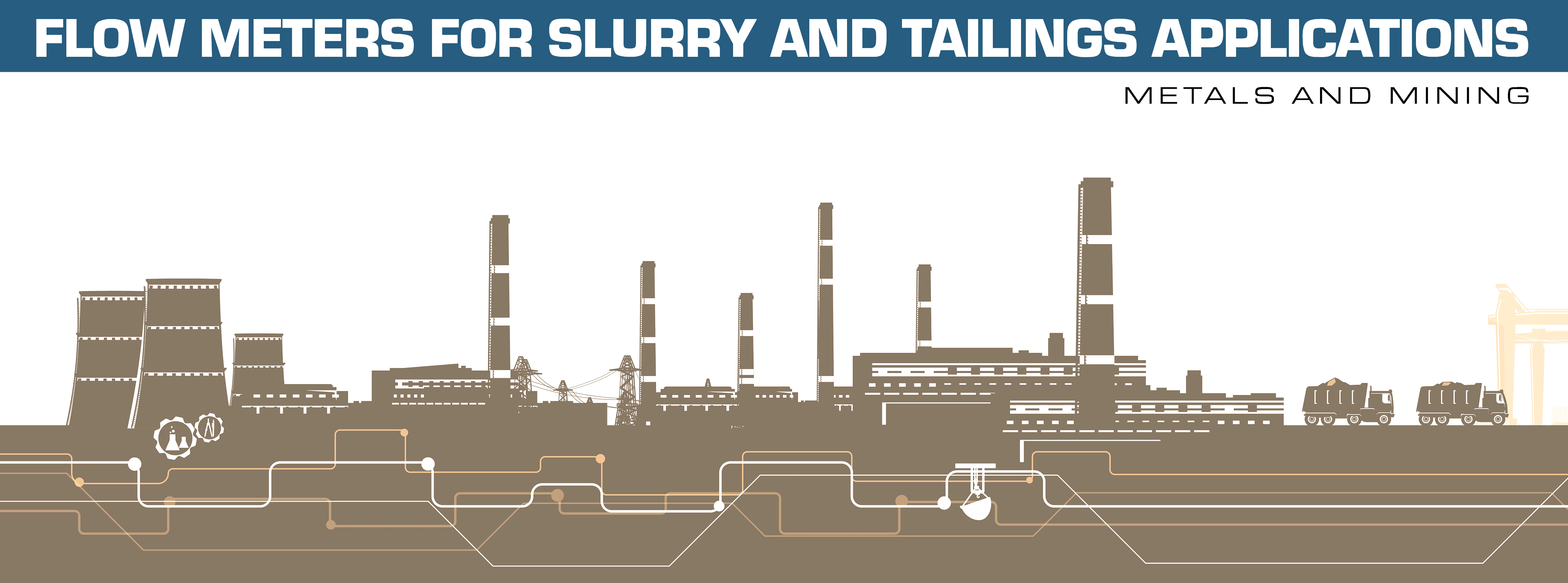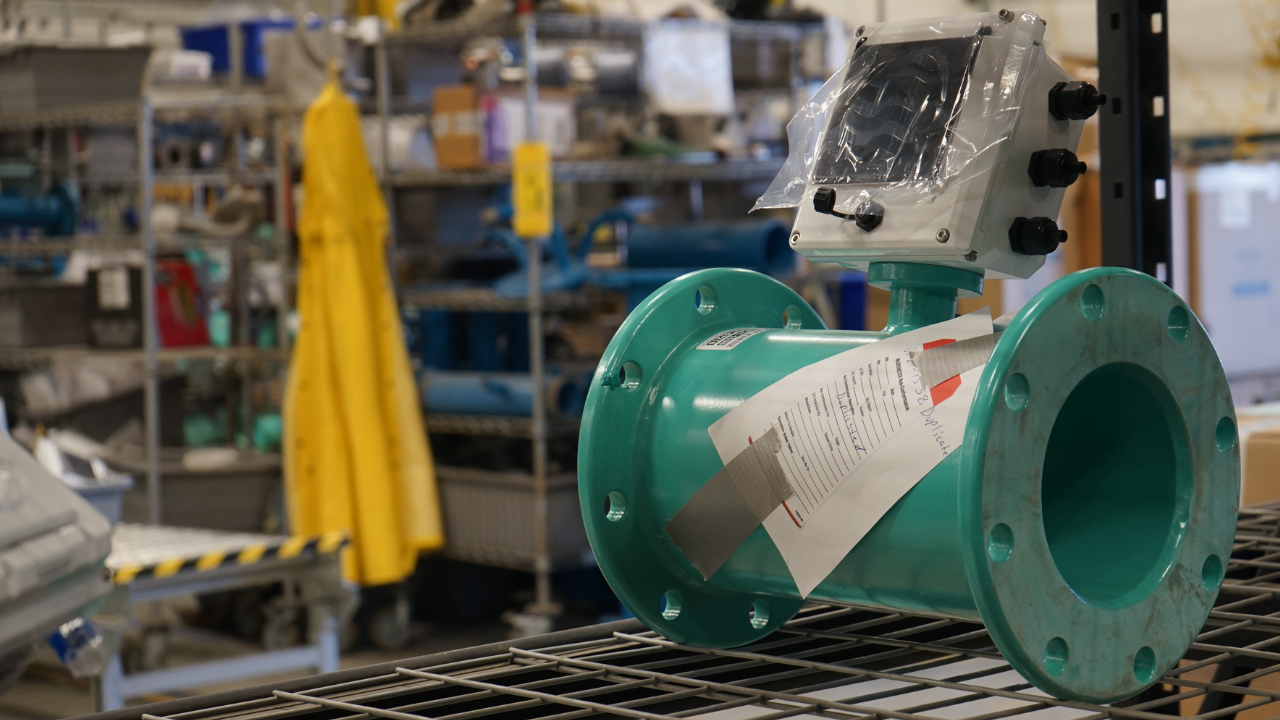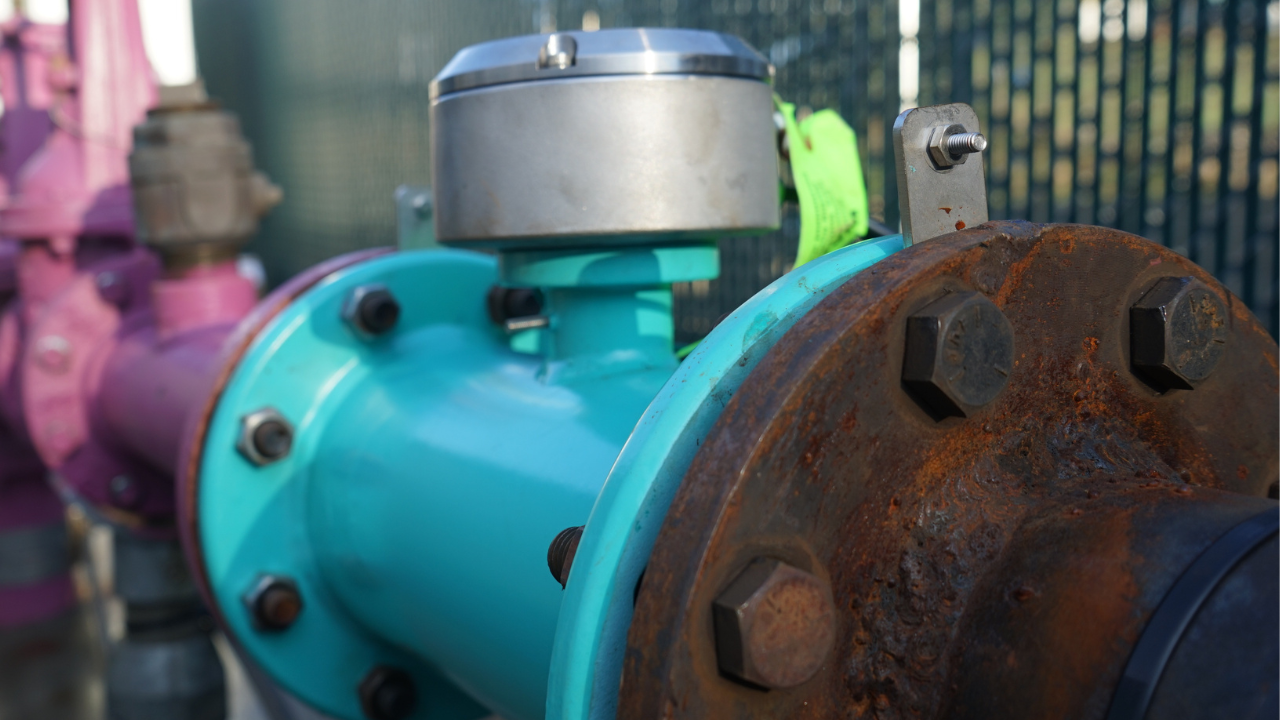Article | January 31, 2023
Download as a PDF document

Efforts to improve productivity, decrease downtime, and increase the bottom line are ramping up now more than ever due to the current economic environment. Rising inflation and a severely impacted supply chain have caused many industries, mining included, to seek out methods of curtailing costs and improving manufacturing output. While production, personnel, and spending might be the immediate low-hanging fruit that operations managers focus on, there’s a way to spend money that helps mining operations increase revenue and improve operational efficiency.
Mining operations may already have flow measurement devices installed in various applications such as pit dewatering, air and exhaust flow, and feed water, but may not be utilizing the right flow meter for these applications or using the meters to their full potential.
For tailings operations and mining applications measuring slurries, companies are often required to report flow to local or federal regulatory bodies, as well as record flow for internal monitoring of efficient system performance. When flow data is critical to both compliance as well as performance and output, effective flow measurement devices are critical.
Taking these three factors into consideration when optimizing flow measurement can improve overall management of slurry and tailings operations.
1. Choose the right technology.
It must be said: not all flow meters are alike. There is an assortment of technologies available that suit various flow media, pipeline conditions, and application specifications. Mining, metals, and mineral processing all vary in their flow measurement needs. For instance, in mineral processing, thickeners may be added to the flow media to increase particle size during water recovery and reuse. This type of application requires a flow meter that can tolerate a potentially caustic and viscous flow media and provides the communication outputs needed to send real time flow data to operators and technicians.
While traditional propeller meters or other mechanical devices might be suitable for initial feed water, more robust technologies are needed for flow media like slurries and tailings. Slurries are extremely harsh, corrosive flows with large particles that can damage meters with moving parts or gum up devices such as Venturis or Coriolis meters. Electromagnetic flow meters are a popular choice for slurries and tailings due to their tolerance for suspended solids and their lack of in-line components that obstruct flow.

Many mining and mineral processing operations want to reduce water usage and increase output in a slurry and tailings pipeline. Electromagnetic flow meters tolerate slurries with 50-60% solids, a benefit to operators and engineers with substantial slurry flows. Additionally, some meter manufacturers offer mag meters with a variety of electrode materials, including stainless steel, Hastelloy, and tungsten, which can be specified into the project for added corrosion resistance.
In many cases mag electronics, also referred to as a converter or transmitter, have a specific calibration for slurry flows that include a high amplitude, high frequency signal required for pipeline noise filtering to receive a steady state pulse signal. Some older-style mag meters will rely on analog dampening to compensate for the pipeline noise created in these applications, which may cause the electrode signals to take longer to produce a stable measurement. When choosing the right flow meter technology, it’s also imperative to select a suitable meter offering the most advanced measurement methods.
2. Choose an accurate, repeatable flow meter.
A meter that reports accurate flow for years (even decades!) without fail is an incredibly valuable resource. Not only will it ensure precise reporting to environmental regulators, but it will provide operators and engineers with data needed to make informed decisions about daily operations.
Metering at intake/feed water, effluent, and water treatment processes provides multiple data points to operators and engineers calculating resource efficiency and carbon footprint. For corporations with water savings initiatives, this is incredibly valuable data to have, especially in an industry with pressure to meet socially responsible standards.
In slurry applications, maintaining accuracy can be a challenge due to highly abrasive flow media eroding sensors, dulling orifice plates, or damaging the mechanics of a flow meter. For a high pressure, high velocity slurry the best recommendation is a full-bore electromagnetic flow meter with a high accuracy. The electrodes will still dull over time (with a slurry, this is inevitable) but installing a ±0.2% mag meter with a durable liner or protective coating will be the best defense against accuracy loss and erosion. When it comes to slurry processes, even minor improvements to the overall operation can make a positive impact on production and output. Additionally, ensuring that a slurry process doesn’t exceed a velocity of 8ft/second will help prolong the lifespan of the flow meter as well as prevent premature valve degradation and quality issues.

For slurry and tailings applications, implementing reliable metering devices with repeatable measurements can also become an indicator of surrounding equipment performance. If slurry meter readings deviate from what is expected, it could indicate problems with pumps, pressure surges, valve malfunctions, or even pipeline leaks. Any of these issues can warrant costly maintenance, process shut down, or environmental impacts. Multiple metering points in a slurry pipeline, especially one transporting from a remote mining site, can identify potential problems before they become damaging.
3. Choose a meter with data output options
Tailings, the wastewater produced after mining refining processes, are stored in embankments and ponds protected by liners. These liners provide a barrier between the chemical-heavy tailings and the surrounding environment, preventing the waste material from seeping into the groundwater, affecting local flora and fauna and endangering the greater community. Tailings storage facility failures pose a massive risk to the environment and is highly regulated by the Environmental Protection Agency (EPA) and other supervisory bodies.
While tailings management challenges may vary based on the mining operation, location, and size of project, the consensus is that the industry needs better data reliability, insight, management, and integration. A tailings operation has many monitoring points and components, and flow measurement of the tailings effluent and the intake for water treatment and reuse are critical measurement points.
Choosing a meter that tolerates harsh flow media is imperative but selecting a meter that integrates with the operation’s overall monitoring system is also essential. A flow meter that is battery-powered or solar-powered is an ideal choice for a remote tailings application, and output options such as 4-20mA, Modbus, Hart, and others ensure that operators receive flow data as a part of the overall smart mining IoT process. Smart output options save operators and engineers time and miles/kilometers traveled as well as increases safety measures and productivity of the overall mine. For companies with many tailings ponds in multiple areas being managed by staff in various locations and time zones, having a fleet of flow measurement devices transmitting accurate, reliable flow data to one streamlined software management system is extremely valuable.
Many flow meter electronics offer datalogging as well, retaining up to 5 years of historical flow data within the converter or transmitter as a backup. The meter body itself is the conduit for flow measurement, but the signal converter is the reporting, input, and output control device which ultimately provides mining operators and engineers with the data they need to manage their processes.
Easy Flow Meter Implementation for Better Process Management
Mining, metals, and mineral processing operations have a multitude of measurement points transmitting data on various flow media. When choosing a flow meter, it’s also helpful to consider continuity and standardization across the entire operation. Many flow meters that are successful in slurry and tailings applications are also a satisfactory meter for effluent measurement, water treatment and reuse, raw water intake, desalinization, dewatering, and more. If the mag meter is exceptionally durable in slurry and tailings applications, they will require less routine maintenance, recalibration, and replacement. This contributes to more system uptime and overall process efficiency.
Additionally, streamlining flow meters across applications ensures operators and technicians can program meter electronics and manage flow data easily from their integrated software. Flow meters are a useful component within the smart mining IoT, bringing efficiency to the next level.
Ultimately, there are a variety of meters on the market from numerous global and domestic flow measurement manufacturers to choose from. Flow meters allow companies to comply with regulations and fulfill data sharing requirements, but they also provide extremely valuable insight into the health and safety of the overall operation. A truly beneficial flow meter contributes to a company’s overall resource conservation, sustainability objectives, and profitability.

